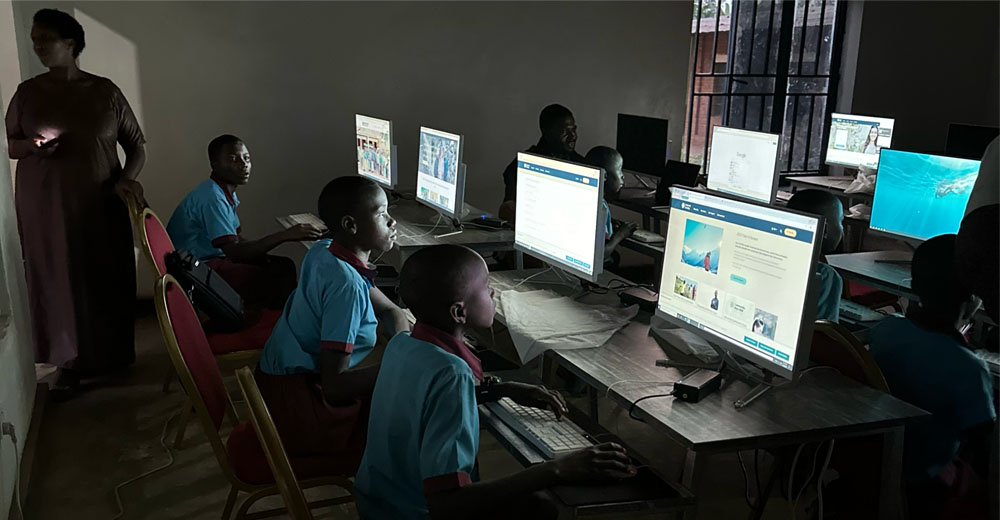One School at a Time:
Narrowing the Digital Divide
in Rwanda
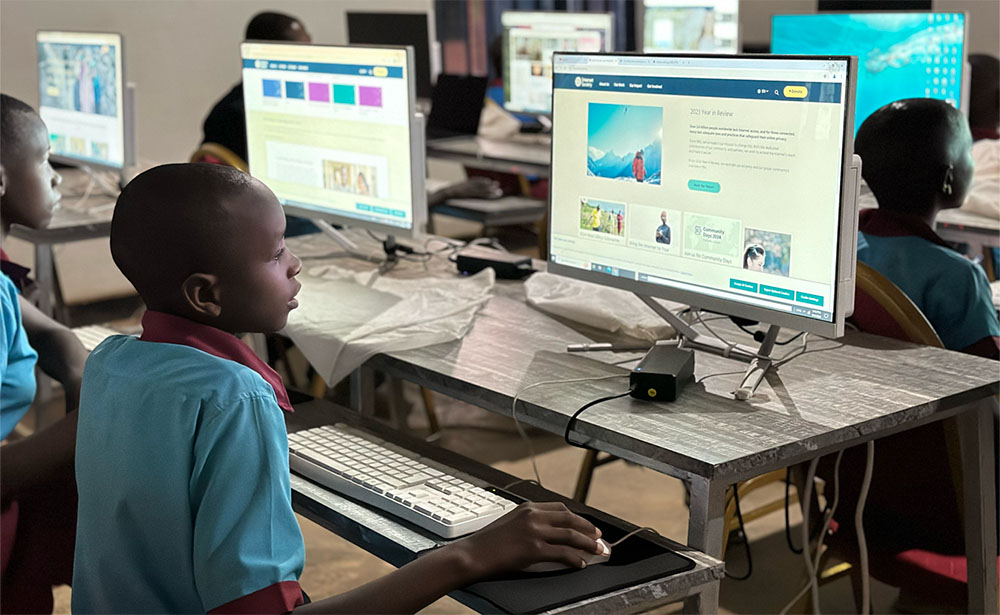
Visiting Rwanda’s bustling capital city, Kigali, travelers often associate this small, landlocked nation with the cutting edge of technology and connectedness. But outside the metropolis, it’s often another story—many villages still have no electricity, much less Internet connectivity.
One afternoon in April 2019, as the school day ended, economics teacher Patrick Umuhoza closed the door to his classroom, opened his umbrella, and stepped out into the rain. He sighed in frustration as he began his three-kilometer walk to the nearest library. It was the height of Rwanda’s rainy season, and he knew he’d get drenched, but Patrick had no other way to get information for his students. Although his school, St. Tite Butereri, had finally been equipped with electricity two years before, it still had no computers or Internet access.
Opening an Internet Access Center
Having no Internet access at the school was far from ideal. But when the COVID-19 pandemic struck, the resulting restrictions on movement made the need for remote access to information unmistakably clear. By 2021, newly motivated to connect the unconnected, the Bugesera district director of education put the Internet Society’s Rwanda Chapter in touch with St. Tite Butereri.
Enter Emmanuel Mfitumukiza, the chapter chairperson, who was excited to start work on the project with his team. Equipped with funding from the Internet Society Foundation, the first task at St. Tite Butereri, which has 32 teachers and 850 students, was to build a secure computer lab to serve as the Internet access center. Once the premises were ready and furnished, the project staff brought in 20 computers, a projector, and a printer.
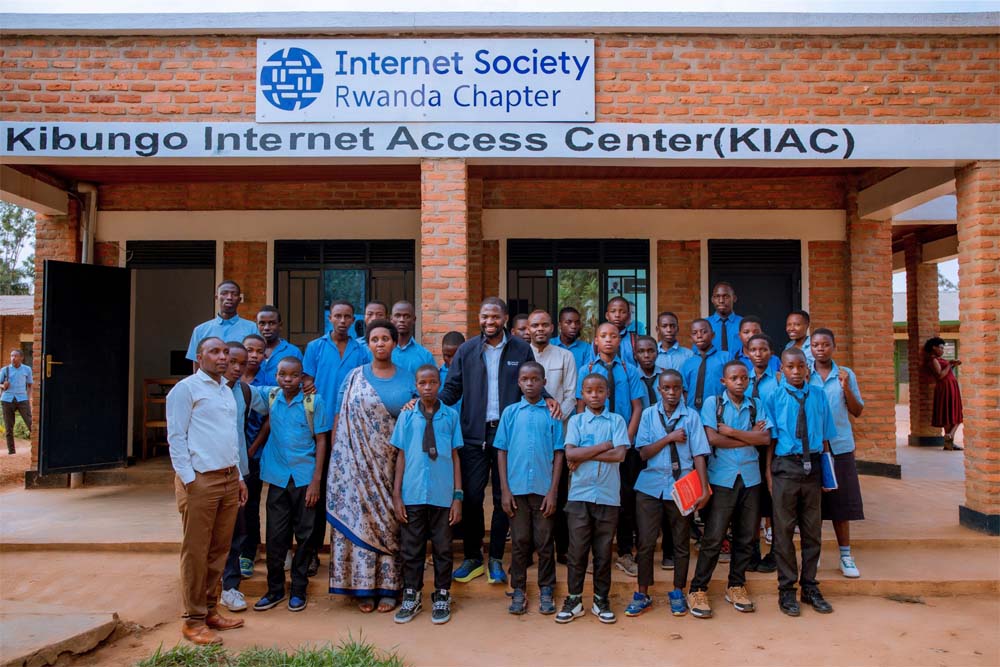
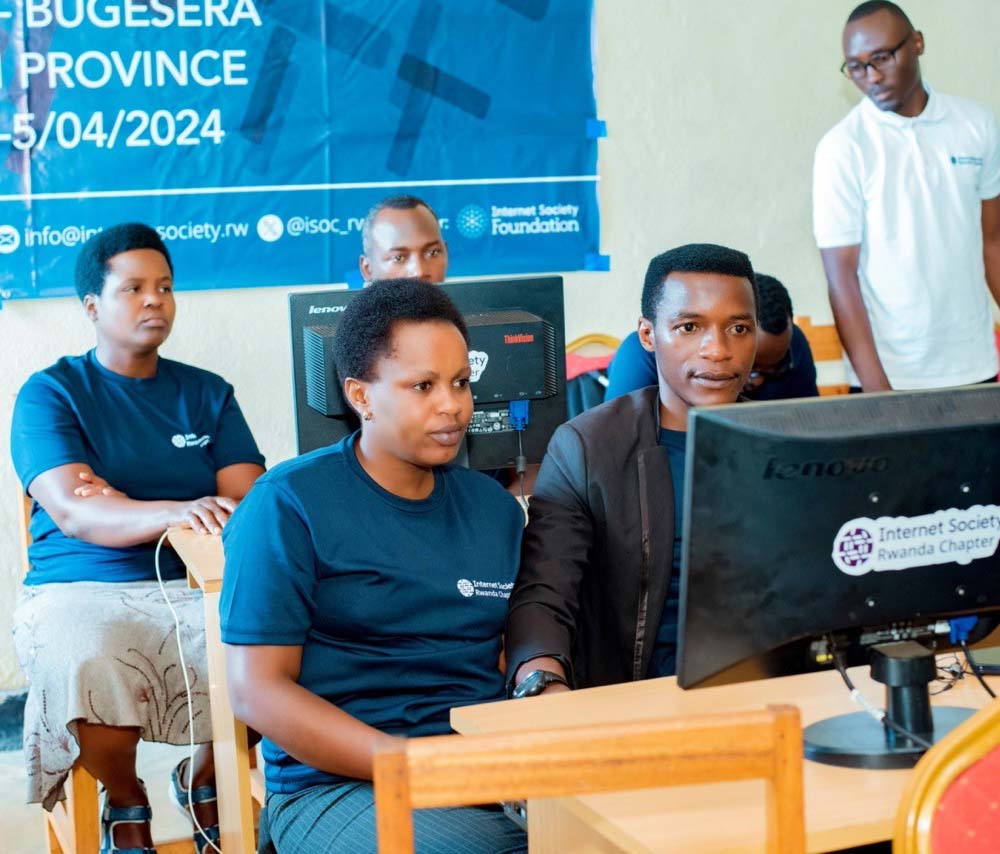
Digital Skills Training for Teachers
While having computer equipment is essential, learning how to use it is equally important. The project staff gave the teachers digital skills training over five consecutive weekends to round out the initiative.
The teachers learned to log on to a computer, connect to the Internet, and use email, Microsoft Office tools, and Zoom. They were able to practice typing and printing exam papers. The project staff also explained Internet safety, privacy, digital footprints, and data confidentiality. In the end, the teachers received technology certificates.
“The training was really exciting for me,” said English and Kiswahili teacher Aphrodis Mico. “It was a dream come true.” Solange Uwamahoro, a hairdressing and beauty teacher, was pleased to have learned so much in such a short time. “We got a lot out of those 10 days,” she said. “I’m now able to prepare student portfolios using Microsoft programs.”
Donathille Yankurije, the school’s principal, thanked the Internet Society for empowering her teachers to give students a better-quality education. “It warmed our hearts to receive access to this technology,” she said. “It brought us out of our long isolation and into the world of the future.”
A Brighter Tomorrow for All
Five years after Patrick’s trek through the rain to the library, things are very different for him. “Now, when I want to show something to my students, I just go to our computer lab and do a web search,” he said before adding with a grin, “I get the information in no time—even if it’s raining!”
The project team has since opened Internet access centers at three other Bugesera district schools—Nyirarukobwa, Kayovu, and Kibungo—and plans to open four more over the next five years. Thanks to this work, thousands of teachers and students have gained Internet connectivity and digital literacy skills critical for keeping pace with the national curriculum, which is increasingly moving online. Above all, these children now have more opportunities to learn and fulfill their potential.
An important goal in these projects is bringing parents and other local community members into the technology centers so that they, too, can benefit from the Internet. Community Internet users have increased as awareness of the Internet’s benefits spreads. “And we’ve recruited new members for our chapter, who’re now supporting us as community contacts,” said Emmanuel.
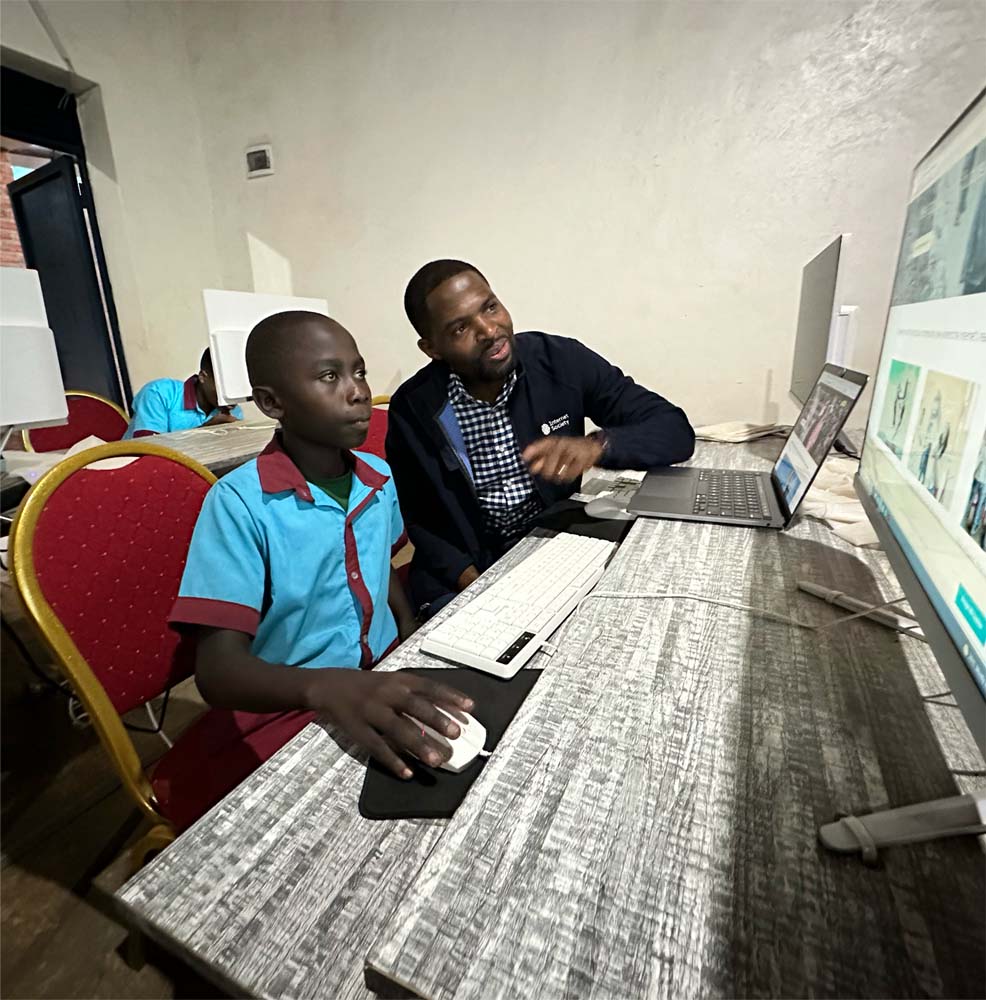
This work would not have been possible without funding from the Internet Society Foundation, which covered most of the project’s costs. A Nigerian firm, ITSM Technologies Ltd, also supported the initiative by contributing a 12-month Internet package covering service, maintenance, and antivirus protection.
Image copyright:
© Victor Ndonnang
